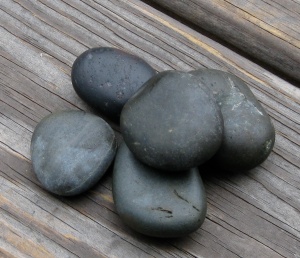Today I woke up at 6:22 a.m., and even though I didn’t want to I felt I must take a walk. It was still dark outside. I dressed into the first things I could find, and couldn’t locate my glasses, so I put on my husband’s prescription sunglasses. I looked like a bug creature.
I felt like I should go back to a nearby hillside were I walked earlier this week. I had gone there to see the sunrise then also. I had gone a bit too early, and by the time came for dawn, dense cloud cover blocked a good view. Still, it had been a nice experience.
This time as I crouched on the dewy hillside overlooking the tree-covered town of Cressona, dotted with lights, I looked up at the stagnant bluish cloud cover again. But interestingly, if I waited about 15 seconds I could sense cloud movement eastward. It made me realize that even when I’m waiting, and it seems nothing is happening, it is. Sometimes I just have to be more perceptive, and patient to notice it. The morning turned beautiful with the new light, and the dark prescription sunglasses intensified the hues, especially the reds, making the scene even more brilliant.
It was an introspective start to me day. Worshipful, pondering, astonishing, and encouraging. Surprises are at every turn.
I changed the header photo on the home page to one from this a.m. Hope you like it.





